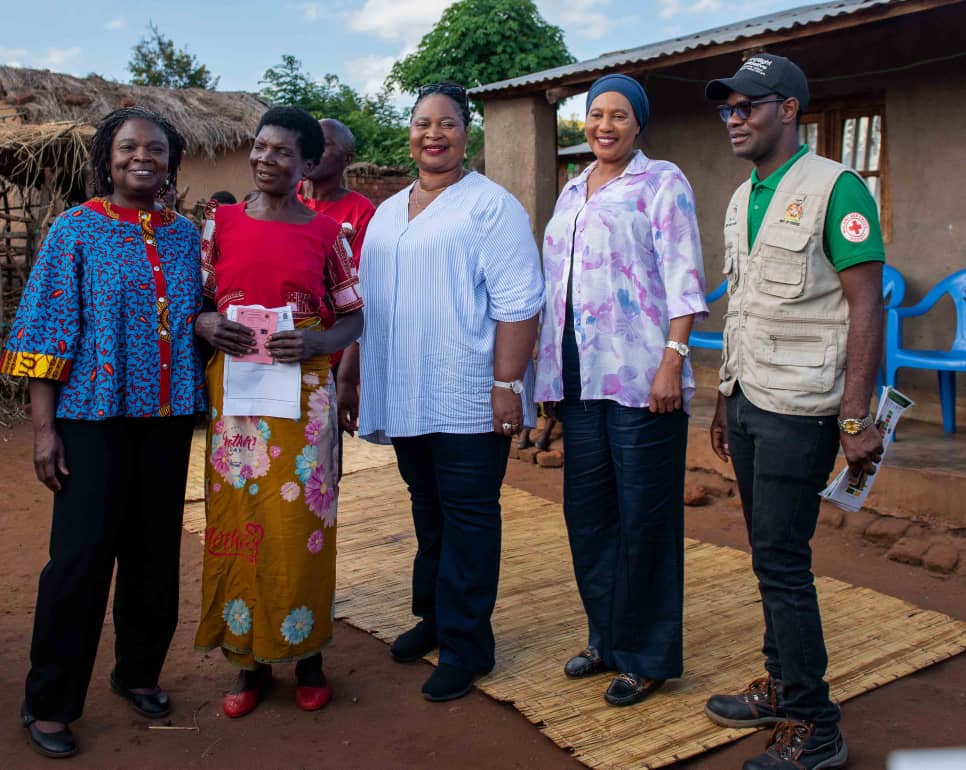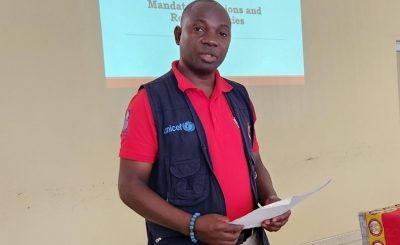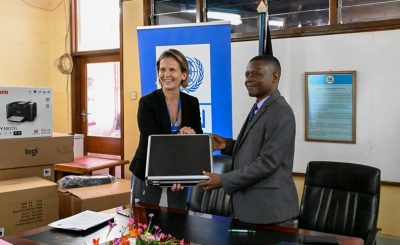The World Bank says it is impressed with the positive impact the Social Support for Resilient Livelihoods Project (SSRLP) is making to people in targeted areas across the country.
Visiting World Bank Regional Vice President for Eastern and Southern Africa Victoria Kwakwa said this over the weekend in Doŵa when she visited some of the beneficiaries under the project’s Tovi micro catchment area.
She said: “I am impressed that the project is actually making a difference on a couple of fronts like climate resilient through climate-smart public works programme as we saw on the hill here in Tovi how the beneficiaries are conserving the ecosystem.”
Kwakwa added that the project aims at improving resilience among the poor and vulnerable population, an objective that she has witnessed in the district.
“You don’t want people just getting cash transfers, you want them to get the needs to build economic livelihoods, so we saw the economic inclusions component and the skills being provided to people to venture into various money-generating endeavours,” said Kwakwa.
Tovi micro catchment, which lies between two major trading centers, namely Chimwaza and Doŵa turn-off, is located in T/A Msakambewa and T/A Mkukula in Doŵa District.
By means of the project, people in the area are expected to benefit through the promotion of entrepreneurial skills, which include horticultural production, beekeeping, and mushroom production, among others.
Concurring with Kwakwa, the minister responsible for gender, community development, and social welfare, Jean Sendeza expressed satisfaction with how the project is positively impacting targeted beneficiaries.
“This programme is really helping our people, apart from the restoration of the forest, they [beneficiaries] are getting money through the social cash transfer whereby they are changing livelihoods in their households.
“So the message that I would want to convey to the public is that let’s all of us make sure that we are conserving our forests through cash transfer,” said Sendeza.
Meanwhile, one of the beneficiaries under the social cash transfer programme, a single mother, Magdalene Medisoni, has built a house and tends livestock while taking good care of her orphaned grandchildren.
The project is expected to reach a total target of 405,000 ultra-poor and labour-constrained households per year with shock-responsive Social Cash Transfers (SCTP) in 18 districts and four City Councils of the country; 235,000 beneficiaries under contingency cash transfers, and support 590,000 ultra-poor households per year with labour in the Climate Smart- Enhanced Public Works Program (CS-EPWP) in all the 28 districts of the Country.
However, beneficiaries under the Tovi micro catchment area have singled out delays in payment of wages and lack of tools as major challenges constraining the smooth implementation of the project in the area.
The $490 million seven-year project, which is being financially supported by the World Bank and the Social Protection-Multi Donor Trust Fund (SP-MDTF), commenced in 2020 and will run up to 2027.
The project will also reach a maximum of 520,000 households by 2027 with livelihood support, and an enhanced focus will be given to women and youth to ensure increased participation.





